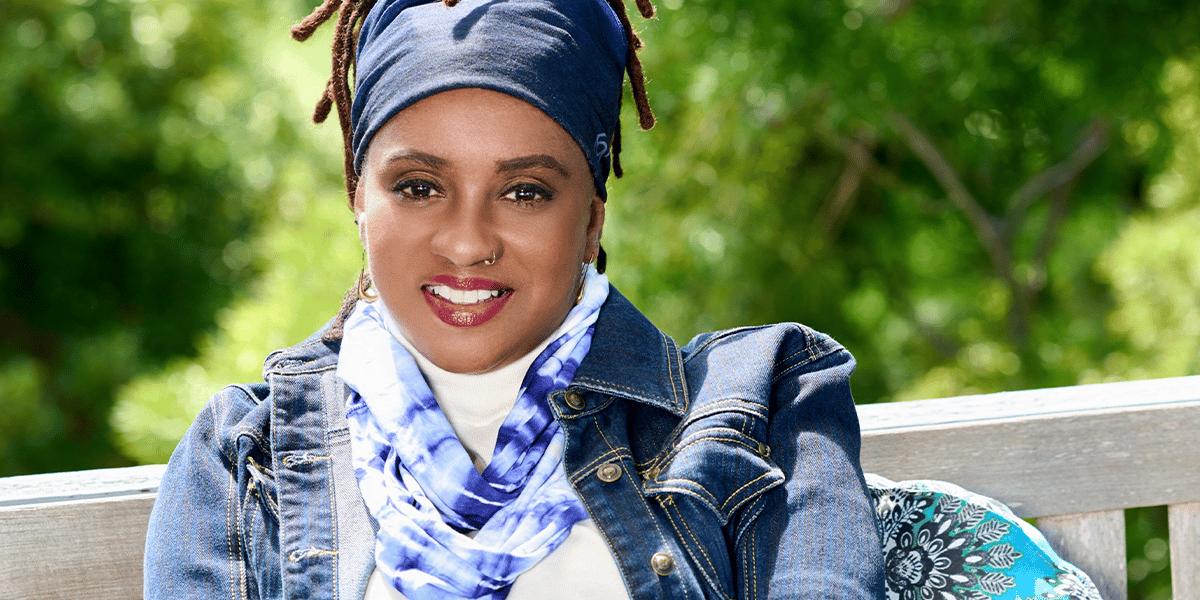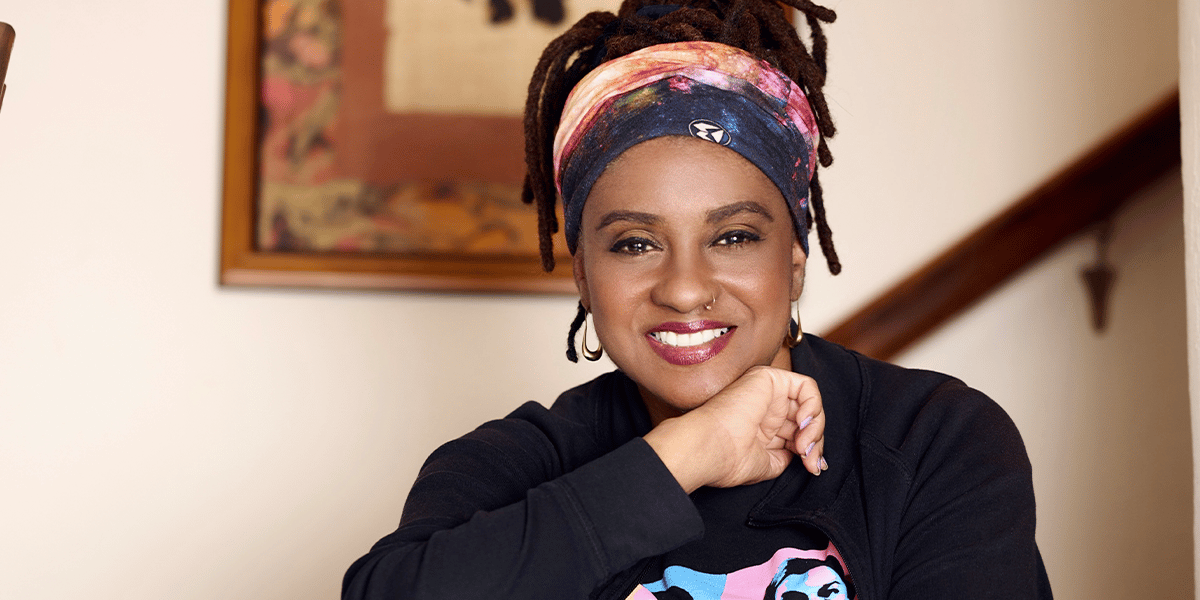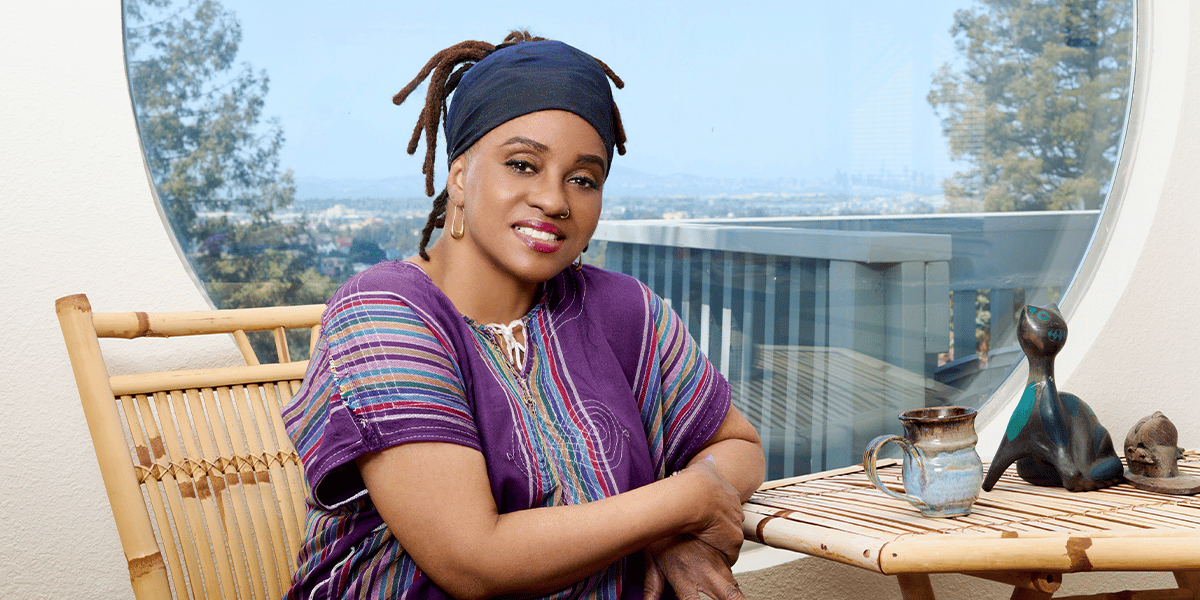Deborah Vaughan on Movement and Culture
For over five decades, Deborah Vaughn has danced through the motions of the changing cultural landscapes. She continues to stand up for equality and equity in recognizing the historical and cultural impact of the African diaspora the and African-American experience through art of dance..
Interview by Timothy Diao
When Deborah Vaughan co-founded Dimensions Dance Theater in the early 70s, it was clear to her and her peers that the dancers they saw on stage did not look like them and did not share the stories they lived. An observation that prompted them to ask where they, as performers and their own lived and historical narratives fit in the existing marquees.
“We wanted to start a company for black people and black thoughts on what was happening politically. It was central to us to show what was happening in the world.”

The dance company was born as an avenue to articulate African-American culture, experiences, and the changes they wanted to see. It was their form of activism, grounded on creative expression and story-telling.
The drive to preserve and celebrate her culture through dance is an amalgamation of her upbringing and the world she moves in. She grew up with vignettes of her family’s exodus across America, her enslaved and Native American ancestors, and the racism and sacrifices it took for them to survive. Alongside the resillience and the pain, Deborah also saw their joy and power through art, music and dance, and celebration of life. These early influences informed her passions and principles. The very beliefs she still stands up for today.
She recognizes that there’s still so much work to be done for equality and equity, not just in treatment but also in recognition and appreciation. At 75 years old, Deborah continues to forge a path for the past and the future. Beyond keeping her culture and experiences alive through her movement, she instills the virtue of conserving and advancing the African diaspora and African-American experiences to the next generation of dancers and the world beyond them.
Can you tell us about your family? What was your childhood like?
My family is from New Orleans and Oklahoma. They came here (California) during the great migration when many Americans came here after World War II because, at that particular time, people were trying to find jobs.
Before that, people were trying to find jobs, establish a new life, and get out of the South because of many horrific things. There was a great deal of discrimination, and people were getting killed.
My great-grandmother was an enslaved person who moved from Mississippi to Louisiana. And if I go further back, many people in my family were too. They became sharecroppers. Then, her descendants came from Louisiana to Los Angeles, Texas, and you know, people spread out. Everybody was looking for new opportunities because the times had changed.
I don’t want to leave out my father’s side of the family. They were from Oklahoma. They came from two distinct cultures that came into being from what was happening in America. They were descendants of enslaved people and Native Americans.
A lot of people don’t know that there was a mixture of cultures and races that had to work together to confront colonialism. People don’t know or understand that Native Americans helped the enslaved Africans. It’s a part of history that people don’t know and understand.
And how did that inform your upbringing?
I think the greatest influence was my parents exposing me to different cultures through their cultural backgrounds. So my mother, of course, wanted me to know and understand the influences of Louisiana. And then, every year or every other year, I would go back to Oklahoma with my father.
That was a different experience. We always traveled by car. Traveling by car, I saw how each place we passed through differed from the other. We had to travel through New Mexico, Barstow, and Texas, and all these places had different cultures. These places are very different and have something different to offer that I didn’t necessarily understand at that time, but I think that sparked my interest in culture. I don’t think that was deliberate for my parents, but it was just something that I was soaking up.

What interested you in dance? What was your first encounter with dance as an art form?
I got very interested in dance and culture through a dance teacher named Ruth Bedford. I learned of and was introduced to her through some friends in junior high school. They invited me to dance classes— which were free. I went, and I learned from this great teacher. She taught us how to be our creative selves and express what was inside of us. That was the hook for me.
Were your dance classes your first introduction to dance?
For a formal dance program, yes. But one of the things that also inspired me about dance, even before classes, was my family. If you are from New Orleans or you’re from a family that’s from New Orleans, you dance, sing, and enjoyed life. I mean, that’s part of, I would say the recent resistance. That’s how we learn to love and live our lives.
So a big part of your initial exposure to dance was the creative expression of dance and African dances?
Creative dance first because that was how I got introduced to the whole field of dance. It was exciting that I could express myself as a dancer. Another exciting and maybe the most exciting thing for me is the research.
A lot of that research had to do with Haiti. I talked to people who were holding onto their culture, the similarities of these cultures to African American culture, how many aspects of our culture had been erased, and, to some extent, that’s still happening today.
Did your knowledge of culture change at an early age?
How I began to understand my culture, what it meant, and what the possibilities were was so much more than what I had experienced as a child.
My parents were very influential [on my knowledge of my culture], but this wasn’t taught to us in school. And so I learned about culture through happenstance, and my family introduced me to different cultures. It wasn’t something that I learned through education. It was something that I learned through life experience.
Was there a pivotal moment in your life when you felt like dance was your calling?
I think that I started to feel that way about dance in college. I wanted to go into dance, but I would never say that to my parents. For my family, you don’t go to college to study art. That was the thing. You got to go to college to be a nurse or a doctor. So, I thought that being a nurse would be my calling. But when I was in college (this was during the Vietnam War and all of the protests that were going on) we went to Laguna Honda Hospital in San Francisco and there were all these wounded veterans. I wanted to speak about that, but I didn’t necessarily want to be the nurse or doctor. Maybe I could speak about what is happening in the world in different way.
I think that was a pivotal point for me because I had to announce to my parents that I wasn’t going to be a nurse. And they said, well, maybe you could be a fine artist. But I didn’t want to do that either. I wanted to dance, and they thought that crazy. They thought that dance was a stepchild of arts and culture. To some extent, that’s still happening in the dance world. I don’t believe that to be true, but that’s how it’s been considered.
Were you still dancing between the time you first took dance classes and when you decided to pursue it in college?
Oh, I never stopped dancing. And one of the things that catapulted me even further was being part of the Black Arts Movement. I was at San Francisco State College when all the protests about Vietnam, Women’s Rights, and I mean, just so many things were going on. I was particularly interested in how African American culture was being impacted politically.
I wanted to know what service I could share. So that was how Dimensions Dance Theater began. It was our response to what was going on culturally during the Black Arts Movement. And we were a part of that.
In a way, it was your form of activism.
Definitely, and I continue to be a cultural activist and that may not be popular, but that’s where my stance is. I think it’s important to be aware of your culture and protect it. As people, you have to determine where it came from and where it’s going. It can easily be erased if we don’t protect and promote it.
That’s why I think culture is so important, whether it comes down to food, music, or religion. It all has to be respected and retained, and it’s only us that are living that can do that. I mean, we have to go back to our ancestors and pull on their strengths to help us move forward and pass that on to the next generation.
How did your parents feel about your activism throughout the Black Arts Movement? Were they supportive of you?
Initially, they were not, but I think it was because they had a different experience running from the South. From lynching, shootings, and all the racism that was taking place.
I saw the racism that my parents were going through. We weren’t supposed to, but I used to listen to their conversations and hear what they were experiencing. That taught me that when you’re coming into a new area or space, you just need to chill and just get in. Get in where you can fit in.
So when they saw me going into the Black Arts Movement, they understood it and why it was important, but my parents’ thing was more “How about being a nurse?”

Their experience focused on survival, but you wanted to uplift and fight for your space.
Exactly, and that was hard. It continues to be hard because our society is going backward with the progress we’ve made for all people of color. I think it’s important that we—who feel that we can help—make that happen and continue to want to make that happen. That’s what I’m interested in, and that’s what our art has been about.
I think that we’re the change. America is changing but I think that people don’t want to. No one wants to recognize and see what is happening, but honey change is happening. We’re in this pivotal space in America where all these changes are coming along—whether it has to do with abortion, immigration, or reparations. And I don’t see any turning back.
Was prejudice in your chosen dance form something you experienced while going into your career in dance? ,
[Yes,] because there was this perception of high arts in the United States. If you weren’t in the mainstream—if you were not doing ballet, modern, or classical—you weren’t considered in the high arts. And if you weren’t considered part of the high arts, there were less opportunities for you.
And that was in the seventies. Here we are in 2022, and we’re just getting to that point where high art can be any art form. It doesn’t have to be ballet. It doesn’t have to be opera. It can be anything and everything because that’s what we’re as Americans. We’re a multicultural nation with people from Africa, the Caribbean, and all different parts of the world. We have to recognize that and figure out how we can all get along. But that wasn’t the original design. We have to redesign what we want America to look like because everybody’s culture is valuable and has to be appreciated and accepted for us to have America.
It seems like, coming from your stories, highlighting and preserving culture is something that you’ve been working on all throughout your life.
Yes.
In a way, it’s like democratizing what access means. Access to high art and for people to succeed in what they want to do and what they want to express and share.
That’s part of what we’re trying to do. In America, the arts has been for a privileged few. We started our organization, Dimensions Dance Theater, and the first thing we did was make art available to everyone. We try to give access to participant classes, youth groups, and audiences, so they can share and witness the power of art—how it can change more minds and hearts.
I hope people can understand this because I think art has more power than politics, but politics has a bigger voice. Art can really change the hearts and minds of the nation. Or the world even.

Was there a time when you felt like giving up on dance?
Oh, never. I saw a pathway in terms of how dance theater could go further. I’ve never felt like giving up on dance, and I hope the next generation of artists don’t feel that way.
Where did you draw your strength whenever you felt down or defeated?
To some extent, dance always empowered and enabled me. I never felt defeated. What was going on with me was that dance felt like an empowerment. And I still feel that today. Dance has that potential, though not many people see it that way. I’ve never given up on it, and I hope I never do.
How do you feel about celebrating 50 years of Dimensions Dance Theater?
I hope it matters, and I hope it continues in some form or fashion because I know that at some point I won’t be here. I hope that all the lives we touched and what we’re trying to instil in people will help it continue. It’s like a living organism that changes forms and shapes. I hope that people will appreciate it or that it can continue. It doesn’t have to be me.
In a way, Dimensions Dance Theater is a way for you to plant the seed of creative expression in every person that goes through it.
Particularly with African diaspora art forms. There is so much misappropriation, or somebody else claims ownership of it. I hope the true expression of these art forms will continue in its essence and history and the recognition of what it has contributed to America.
I think it’s part of America, and I guess one of the reasons I’m passionate about it is because we know that African-Americans built America.
I don’t want to see that erased because it never received the credit it deserves, especially in how we promote it and perpetuate it.
You mentioned earlier that Dimensions Dance Theater started when you participated in the Black Arts Movement. How did the whole dance company start?
One of the reasons we wanted to start a dance company was because we didn’t see ourselves on stage. Most of what we saw on stage were modern dance companies and ballet companies. And we were like, well, where are we?
We wanted to start a company for black people and black thoughts on what was happening politically. It was central to us to show what was happening politically.
It wasn’t just to have a company. That was never the intent. The intent was to speak out about our culture, what we want to happen, or how we want people to experience that. That was what we were about.
What is it like to be a black woman in your industry and America today?
Oh, it’s a major challenge. Often people of color, in terms of art, our traditions are not considered valid because they are secular. People thought only be ballet, symphony, and opera could be high art. So it’s very challenging. But we’re in a different place now. People are starting to understand that every culture should be considered high art.
What advice would you give to an aspiring dancer?
You have to do this for the love of the art. And everybody that’s an artist knows that being an artist often takes a great deal of struggle and perseverance—just like any other profession. So I encourage them to understand that you don’t do this for money. You may get opportunities that might bring you wealth, but that should not be the motivation. The motivation should be your interest, your curiosity, and most of all, the love and passion for what you’re doing. And your willingness and ability to share and pass it on because it doesn’t stop with you.
And what kind of world would you want to leave behind to future generations of African-American dancers and creatives?
I would like to leave behind a world where their creative endeavors are respected and appreciated. And for people to understand that all dance forms evolve and it’s part of creativity. It’s also a part of how the world changes and how people live their lives. I hope that people will be able to see and appreciate that.
I hope these art forms are used as tools and are understood and appreciated. I think that’s one of the greatest opportunities we have within American culture, but we don’t use it. Not just with the dances of the African diaspora, but also all the other cultures that are here [in America] because that’s where we are as Americans. We have all of these different cultures, and understanding what culture can provide—and dance being a part of it—will help heal our nation.
DEBORAH VAUGHAN
WRITER: TIMOTHY DIAO @timdiao
Copy Editor: KIEDO VILLANUEVA @kei_villanueva
Art Director: NIGEL JOHN DEL MUNDO @nigeldelmundo
Photographer: VINCENT GOTTI @vinniegotti

